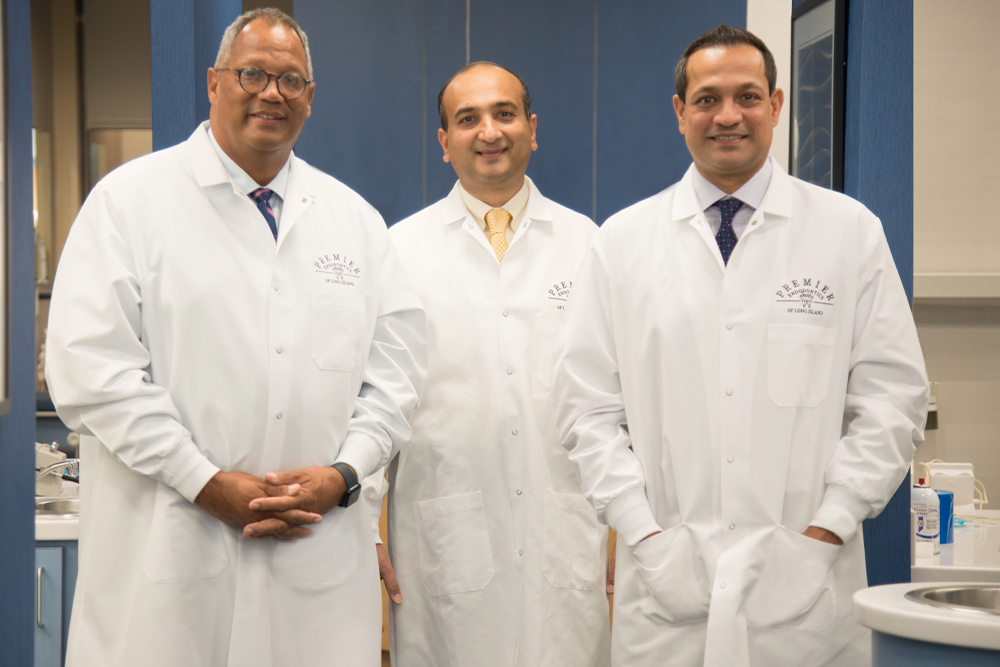After Endodontic Treatment
Steps to feeling better, faster.
After treatment, your tooth and the surrounding gum area may be slightly tender for several days. This is normal and is no cause for alarm. If the discomfort gets worse or if you notice any swelling, contact us immediately. Our doctors are on call 24/7. If you call after hours, please have your pharmacy number available.
Do not chew food on the affected side until your treatment is complete and your tooth is covered by a protective restoration provided by a restorative dentist.

You may continue a regular dental hygiene regimen. You can reduce your discomfort by taking ibuprofen (Advil), aspirin or acetaminophen (Tylenol) as directed by your Premier endodontist. If an infection is present, our office may prescribe you an antibiotic. We recommend that you avoid drinking alcohol while taking any pain medication, whether prescribed or over the counter.
Restoring your smile.
Your endodontic treatment is just the first phase of treating your teeth. In most cases, you will also need to see a restorative dentist. We will apply a temporary seal to help you heal, but a follow up restoration is essential to protect your tooth against fracture and decay. Please make an appointment with your restorative dentist. We typically recommend returning to you dentist 1 week after the root canal is completed to allow sufficient healing time. We will provide a complete report to your restorative dentist to assist in planning your treatment.
Finally, schedule a follow-up appointment with us six months after your procedure so we can make sure you are healing properly. This check-up takes only a few minutes and there is no additional charge for the first follow-up visit.
Patients
- For the next 30 minutes, do not eat or drink anything. You have a temporary filling that takes about 1/2 hour to harden. Please do not feel around your tooth with your tongue.
- If any prescriptions were given, please have them filled promptly. If no prescriptions were given and you are not allergic, you may use any ibuprofen type of medication such as Motrin or Advil, 3 tablets (600mg) every 6-8 hours as needed for discomfort and alleviation of swelling. Alternatively, you may use Tylenol, 1000mg every 6-8 hours as needed. Do not exceed the guidelines printed on the label for any medication. If you are unable to achieve adequate pain control, please call our office.
- You may find using an ice pack on the affected area helpful. Please do not apply ice directly to the skin, have a cloth between the ice and skin at all times. You may apply the ice for up to 20 minutes on and 20 minutes off for the next 6-8 hours as needed.
- Once you begin to eat and drink, avoid chewing or biting on the area worked on until your permanent restoration is in place. The area may be more sensitive due to swelling. The temporary in place is a soft composite that is vulnerable to fracturing (cracking) with hard substances such as peanuts, pretzels, hard candy, ice cubes, etc. You will need to see a restorative dentist within a month to have a permanent crown placed. Please contact your restorative dentist to make an appointment at your earliest convenience. Waiting longer than a month increases the chances that the temporary will fracture and/or decay will develop, in which case, you are at fault and will be responsible for all costs to have it redone.
- Please keep the area worked on clean by gently brushing the area and flossing regularly.
- It is rare for a temporary filling to fall out although it may divot while in use. If the temporary falls out please contact your general dentist as soon as possible. If your temporary falls out after office hours you may purchase some temporary filling material from a pharmacy and follow the included instructions.
- Some discomfort is normal for 2 to 4 days following the treatment. In some cases the tooth and surrounding tissue may be sore for a few weeks following the treatment.
- Normal brushing and flossing are okay, unless otherwise specified by your doctor. Follow any other instructions provided by the office on your visit. Please take all medications as prescribed.
THIS SECTION IS VERY IMPORTANT, PLEASE READ CAREFULLY
While flare-ups are rare, they occur in about 5% of cases and cause significant pain. They occur with teeth that are extremely irritated and/or infected or with teeth that have a history of prior treatment. These sometimes occur randomly, even on patients that have had root canals done in the past without problems. If you have a flare-up you may experience moderate to severe pain, swelling, throbbing or general discomfort; please contact our office. You may be prescribed additional medication such as antibiotics and/or you may be asked to come to the office for further treatment. Should you experience any of these symptoms, please contact the office, even after hours.
Some pain, bleeding, swelling and seeping are normal following oral surgery. A cold compress placed on the face near the extraction site for 30 minutes every five to ten minutes on the day of your surgery can be helpful. This will help reduce pain and swelling. Do not miss your follow up appointment(s) with your dentist and do not probe the area with your tongue or fingers. Please do not touch your lips to see or feel the area treated. Avoid brushing your teeth near the surgery site but brush and floss the rest of your mouth as instructed by the office. You can take ibuprofen or acetaminophen according to the instructions on the label or those provided by your doctor as needed. A warm salt water rinse, approximately ½ teaspoon in an eight ounce glass of water, three times a day can be helpful.
For the first 24 hours you may experience some cold and heat sensitivity. Do not eat, drink, chew or consume foods and beverages that are extremely hot or spicy until the numbness has worn off following the anesthetic. Avoid vigorous physical exercise for the first 24 hours and do not consume alcoholic beverages or smoke for at least 48 hours. Do not brush, rinse or spit. Do not use a straw for drinking. During the first few days after surgery a diet of liquids and soft foods such as soups, yogurt, juice and smoothies are recommended. If you experience excessive bleeding or discomfort after 48-72 hours, please call our office immediately.
Follow any other instructions provided by the office on your visit. Please take all medications as prescribed including your prescribed antibiotics to help prevent infection.
- Motrin 600mg (Anti-inflammatory medication for discomfort)
- Peridex Rinse- Do no start using the prescribed mouth rinse until tomorrow. -Rinse 2x a day for one week.
- Apply ice to the surgical site for fifteen minutes on, fifteen minutes off for four to six hours after surgery. Applications after this period will have only slight benefit.
- Do not use any medication that your physician, pharmacist, etc. has advised you not to take.
- Take all routine medications as directed by your physician. Immediately stop using any drug that causes stomach upset or allergic reactions (including hives, rash, facial swelling, asthma, or wheezing). Seek immediate medical attention if any complications arise.
- Follow your normal home care (tooth/brushing/flossing) routine except avoid the surgical site for a few days.
- Eat meals at regular intervals but avoid food that may traumatize the incision site. Avoid spicy and hot 9temperature0 foods. Good foods are eggs, soup, pancakes, milkshakes or yogurt.
- We know that you are anxious to see the results of your surgery, but please do not forcibly pull your lips or cheeks away to inspect the surgical site. This action could possibly tear your sutures.
- Sleep with two pillows to slightly elevate your head during the first night.
- Call us immediately if you experience more than slight swelling or discomfort. In case the doctor needs to call in a prescription, have your pharmacy number and address handy.







